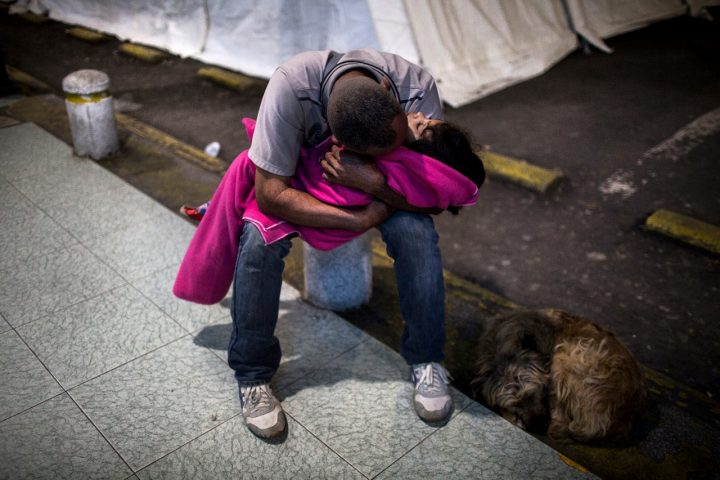by Javier Tolcachier – *Photos: Edú León
They are drowned in the Mediterranean, deported to the Balkans, persecuted in the United States, exploited in the Far and Middle East, detained in Europe, discriminated against in South America, violent in Central America and Africa. They are robbed of their savings to finance crossings, cross borders or get visas. They survive in camps and sheds; overcrowded in urban peripheries, hidden in low-income neighbourhoods, or locked up in concentration camps awaiting their next deportation.
Everywhere the system expels them, limits them, mistreats them, incarcerates them and attacks them. In many places migrants find aversion, suspicion, hatred. But there are also sentient beings who contribute their share of humanity by putting themselves in the place of those who are far from their usual environment and their loved ones.
While a significant number of migrants flee violence and war, many more are self-exiled because of lack of possibilities or motivated by the illusion of work with better incomes for themselves or to give economic relief to those left behind.
It is not only those who cross borders who migrate. Also those who are forced to leave the countryside, those who are expelled from their territories by the extension of agricultural latifundia, by the construction of mega-projects, the destruction of mining, by the extinction of sources of livelihood in rural areas or encouraged by a supposed improvement of living conditions in the city.
Almost everyone, inside or outside their country of birth, faces danger, exploitation, segregation, partial or total disenfranchisement of rights and yet they continue their hazardous journey, in search of what they imagine will be a better life.
What motivates migration is not only in the places of origin
There are 250 million international migrants, half of whom are women and girls.
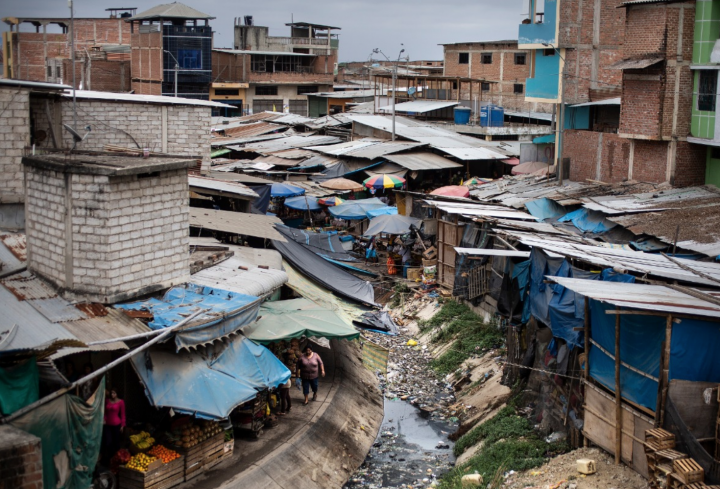
More than 65 million have been forced to migrate by war or persecution, six times more than a decade ago. One third of these people are considered refugees and half of the refugees are children.
What happens in the places of origin is usually pointed out as causes of migration. It should be added, however, that capitalist exploitation in places of destination is also one of the forces encouraging the phenomenon. Due to their precarious situation, migrants are forced to do jobs that the local population does not want to take on, with lower wages and working conditions below the current norm or without any rights. In countries with concentrated wealth, a cold calculation sometimes allows them to assume a formal job, so that their contribution balances the financing of States with an aging population.
And if all this were not enough, as a bad payment for the services rendered, xenophobia spreads as a form of manipulation of the established power, blaming the migrants – as it happened in other historical moments of systemic crisis – for the social strangulation that these same powers produce through their irrational search for profit.
This means that social indignation is not aimed at transforming unjust structures, but is discharged on the foreigner as a cathartic valve. The discourse of rejection of the migrant also serves as a springboard for the political opportunism of right-wing proclamations, which, if they advance, are inevitably a prelude to greater adjustment and repression of the local population itself.
“They come to take what is ours.”
The previous argument is usually a sentence wielded by those who celebrate themselves, without much merit of their own, as “natives” or natives of the place (beyond the fact that in their history they usually exhibit the traces of a migration equivalent to the one they now repel). The theft they fear so much certainly exists. However, the thieves are others.
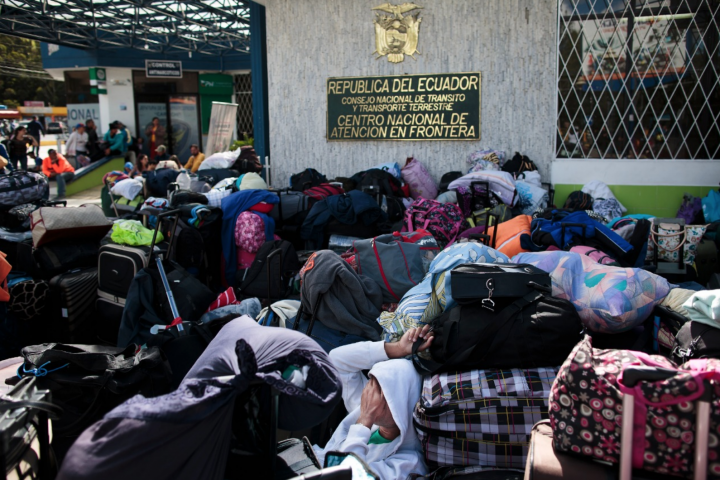
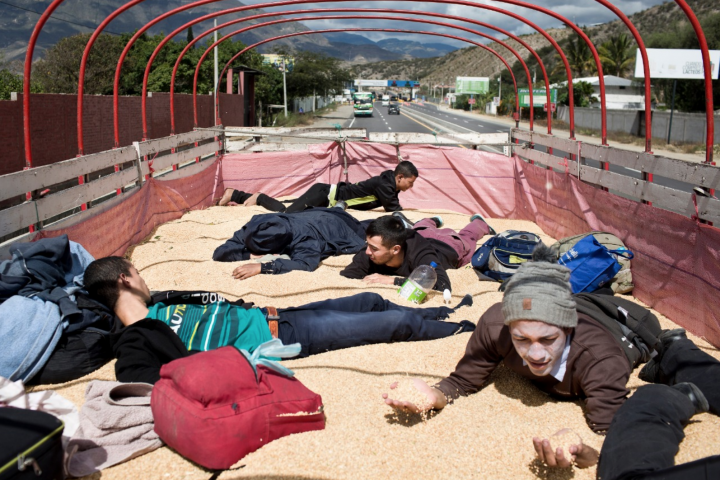
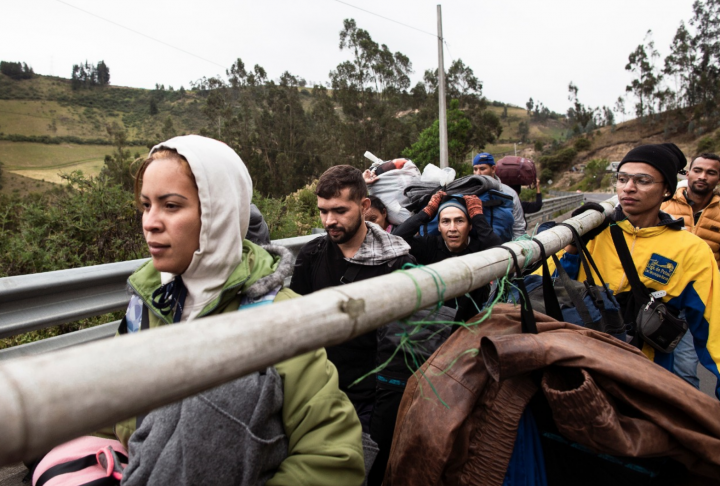
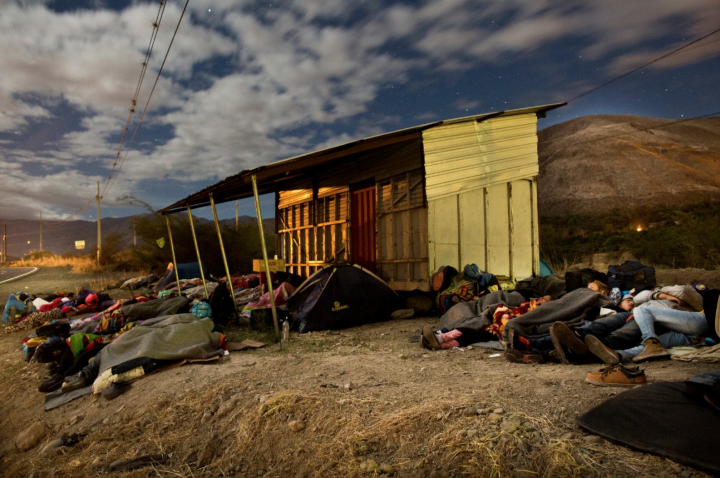
How to calculate the economic damage that colonialism caused for 500 years to the regions of the global South? How much silver, gold, wood, species, bananas, sugar, cocoa, coffee, rubber, diamonds, oil did the empires take away? How many human lives did they take without offering any reparation? How much slave labor did they take advantage of without remuneration or social ascent? How much manufacturing development did they impede to sell their own goods? With the interests of the case -such mathematics that jealously shape when they are the creditors- all the money from the North would not be enough to compensate for the damage caused.
They came and forcibly took away what was “ours”.
It did not reach such a felony, and again, through forced loans and dubious credits, the banking houses of the North continued to plunder the nations of Latin America, Africa and Asia during the post-colonial period and until the end of the twentieth century. Debts grew and became unpayable, while valuable resources were fled that would have made local development possible without dependence.
According to World Bank calculations, “Between 1980 and 2000, the Third World reimbursed its creditors a little more than 3,450,000,000,000 dollars (if we want to calculate the reimbursements made by the whole of the periphery, we must add more than 640 billion dollars returned by the countries of the former Eastern block. Total for the Periphery: around 4,100,000,000,000 dollars. World Bank, GDF, 2001)”[1]
They didn’t even come, but they still took “ours.”
But nothing was as voracious as the conglomerates of the global North. Thus, with neoliberal ideologies as a neocolonial argument, companies were privatised and became the property of global corporations. If there were problems, that is, if we tried to recover power over natural resources or national strategic companies, we had to solve the disputes in places governed by the North, paying, once again, enormous sums.
They came, they left, and anyway, they took everything. Or almost everything, leaving yes, ecological, economic and human deterioration difficult to repair.
At the same time “free trade” was propagated and implemented, which meant that the South could continue exporting primary products in unfair exchange for capital goods or manufactures, without customs protection for the development of national industries. Again, they came for what is “our”.
And finally the internet appeared, with which at the click of a mouse one trades, underfinances, exploits, and how can one not see it, “ours” is extirpated, for the umpteenth time. Our – hence the inverted commas – was never truly so ours. Because in the South, property was almost always in the hands of oligarchs and governments that the North put in and took out when they were no longer useful. They did not even leave the dignity of sovereignty, they also took it away.
With these antecedents, how is it that the governments of the North complain because many people now arrive to claim at least crumbs of stolen welfare? The governments that put up walls and fences, that arm border armies, are the same ones that continue to sell the weapons that throw millions of human beings into desperate migration.
Those who claim to offer “humanitarian aid” are the same ones who continue to dispossess resources as if it were something natural or moral.
How naive, cynical and hypocritical are the governments of Europe and the United States, who proclaim the defense of “human rights” and accuse other nations of violating them! How false and indefensible their discourse! Instead of pontificating what should be done, they should start by setting an example. A gigantic and just historical reparation awaits its turn without delay. Part of it is the establishment of a Universal Citizenship.
Universal Citizenship, for a world without walls
In June 2017, the visionary government of Evo Morales organized in Cochabamba, Bolivia, the World People’s Conference for a World without Walls towards Universal Citizenship. In his final declaration, human mobility is unmistakably dignified as “a right rooted in the essential equality of the human being.
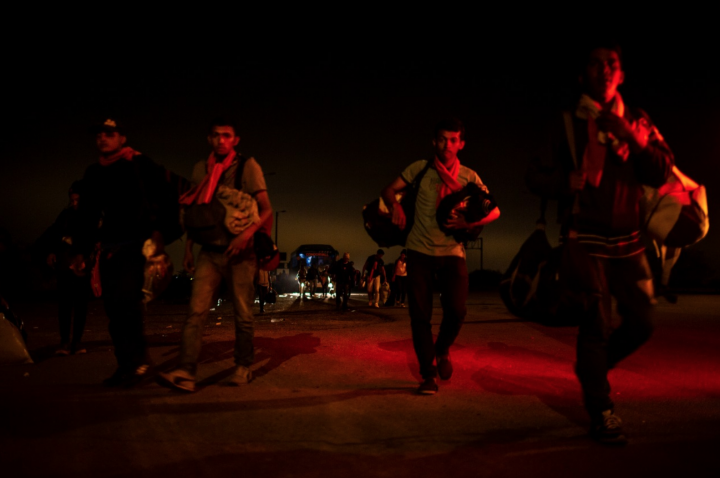
As for the systemic root of the issue, the text – the complete reading of which we recommend – states: “We have verified as the main causes of this crisis the armed conflicts and military interventions, climate change and the enormous economic asymmetries between States and within them. These destructive situations have their origin in the dominant world order, which in its excessive voracity for profit and the appropriation of common goods generates violence, promotes inequalities, and destroys Mother Earth. The migratory crisis is one of the manifestations of the integral crisis of neoliberal globalization”.
The attendees to the popular summit summarized in ten points a propositive programme, among which stands out the removal of “physical walls that separate peoples; invisible legal walls that persecute and criminalise; mental walls that use fear, discrimination and xenophobia to separate us among brothers and sisters. Similarly, we denounce media walls that disqualify or stigmatise migrants, and we are committed to promoting the creation of alternative means of communication.
Other proposals included rejecting the criminalisation of migrants, diverting war resources for integration programmes, combating “criminal networks that traffic in human beings, and declaring human trafficking and smuggling a crime against humanity.
As a fundamental statement, this document exhorts to “overcome the hegemonic perspective of migratory policy that proposes a management of migrations in a “regular, orderly and safe” manner, for a humanist vision that allows to receive, protect, promote and integrate migrants.
The reference to a “regular, orderly and safe” migration is not fortuitous, since these are the nuclear terms of the Global Agreement on Migration signed in Marrakech (December 2018), to which 156 countries finally adhered (out of 193 that make up the United Nations system).
The pact is a non-binding agreement around twenty-three objectives that, although it validates guarantees of basic rights such as “measures against trafficking and smuggling of persons, avoiding the separation of families, using the detention of migrants only as a last option or recognizing the right of irregular migrants to receive health and education in their countries of destination”[2], does not advance beyond the status quo of a world of unequal life opportunities.
In the text, States pledge to cooperate with search and rescue missions in saving migrants’ lives, a premise that exhibits its total falsity in the daily acts of persecution, punishment and omission of aid to immigrants.
Moreover, the signatories of the pact promise “to guarantee a “safe and dignified” return to the deported immigrants and not to expel those who face a “real and foreseeable risk” of death, torture or other inhuman treatment. This risk is calculated by a bureaucracy that acts according to the parameters and requirements of an affluent world.
One could not expect more from an international system, whose current axis is intended to protect and not affect interests of power. In short, under the wing of sovereign legislation and “rationality”, this pact assures receiving countries that they will have migration according to their own order, needs and convenience. Even so, countries such as the United States, Israel, Chile, Austria, Hungary, the Dominican Republic, Poland, Estonia, Bulgaria, the Czech Republic and Australia considered too many guarantees and withdrew their approval.
A Humanist View of Migration
Moving towards a humanist vision of migration means detaching oneself from a feudal gaze, anchored in the subjection of human beings to naturalized, physically localized and immovable identities. The enormous facilities reached in human mobility, the shortening of time and space invite to remove impediments to free movement.
The obstacles to Universal Citizenship, to the free and welcome settlement of human beings anywhere on Earth, are hindrances of an earlier time, but also contradictions arising from the interest in maintaining illegitimate benefits at the cost of the suffering of others.
Neoliberalism promotes the free mobility of capital and borderless trade while criminalising and using the poor migrant. Thus, the countries with the greatest economic power refuse to share knowledge and technological development with places where there is only a shortage, and then repel those who knock at their door asking for help.
On the contrary, to adopt a humanist dimension to migration is to adhere fervently to the idea of the renewing encounter between cultures and people, it is to appreciate in a heartfelt and effective way the value and equivalence of each particular identity. It is to be ready to share the fruits of the collective human effort coined in centuries, without the need to mediate.
It is recognising the justice of undertaking the historic reparation of colonial dispossession and closing the long historical chapter of economies founded on war. It is to vibrate with the possibility of cooperation, solidarity and empathy among peoples.
To be inspired by a humanist perspective means celebrating migration, recognising the historical trajectory of human groups towards horizons of confluence and fusion. It is, in short, to assume the unity of diversity as a project towards a shared space, the Universal Human Nation.
(*) Javier Tolcachier is a researcher at the Centre for Humanist Studies in Córdoba, Argentina and a communicator at the international news agency Pressenza.
1] Toussaint, Eric. Transfers from south to north. The stock market or life. Finances against peoples. CLACSO (2004) Buenos Aires.
2] Global Compact on Migration, what does it oblige and what benefits does it have? United Nations. Retrieved from https://news.un.org/es/story/2018/12/1447231 on 20/07/2019
Translated by Pressenza London


